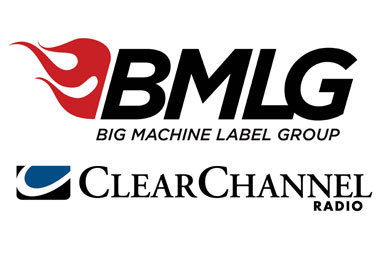
 The new agreement between Clear Channel and Big Machine Label Group is likely to spur more record companies and artists to seek similar opportunities with CC or other radio conglomerates.
The new agreement between Clear Channel and Big Machine Label Group is likely to spur more record companies and artists to seek similar opportunities with CC or other radio conglomerates.
Announced yesterday (6/5), the agreement is very important in two respects: 1) it marks the first time artists will be paid a performance royalty for radio airplay in the United States. Traditionally, only songwriters have received radio performance payments. 2) It is designed to drive digital radio growth.
Today’s Wall Street Journal says the agreement “represents a historic shift,” calling it “a major bet that radio’s future is online rather than over the air… With the growing ubiquity of smartphones and more cars that include Internet-radio options, consumers are spending more time listening to music online, escalating the royalty costs along the way.”
The LA Times agrees, “The Clear Channel pact with Big Machine is evidence that the radio company is making a big bet on its online operations.”
The new business model set forth in the agreement is designed to level the royalty payment playing field for all types of radio. The model has BMLG and its artists being paid terrestrial performance royalties in exchange for a lower rate of digital performance royalties, which will distribute the royalty cost more evenly between both kinds of radio.
Under current circumstances—which the CC/BMLG model aims to change—the growth of digital radio is stunted because a high percentage of each company’s income goes to pay artist and songwriter royalties. These royalty rates are often based on individual song plays, and though they are fractions of a cent, can add up very quickly to large sums. By comparison, a low percentage of terrestrial radio station revenue goes to royalties, which are exclusively paid to songwriters via the performing rights organizations. Additionally, terrestrial radio recently entered a different agreement to decrease the rates it pays to the P.R.O.s.
Irving Azoff is the first music industry giant to publicly share his approval of the new business model, which was created by BMLG Pres./CEO Scott Borchetta, who is also a partner with Azoff and Virginia Davis in BAD Management.
Azoff told Bloomberg Businessweek that he is inclined to seek radio royalties for the artists he manages. “We’re trying to convince labels to enter into a direct deal [with radio] because we can’t get legislation passed,” he explained.
Tom Poleman, Clear Channel’s Pres./National Programming Platforms stated in a letter, “Because of the expense, we may not be able to partner with everyone until we see results from accelerated digital growth to offset the cost of sharing our broadcast radio revenue. But these are the kind of risks we have to take to be an innovator and fundamentally change our industry.
“This move is historic because it introduces a completely new structural model for our businesses,” he continued. “Why the change? Because it’s good for the long-term health of the music and radio industries. For digital radio to grow, it’s critical to have a predictable, sustainable pay structure that aligns radio, label and artist interests. It’s a bold move. And, yes, it will cost us more money in the short term and possibly even in the long run. Under this new, aligned structure, radio, labels and artists now all stand to make more money as we drive the growth of digital radio. Our interests will be linked. As we make money, labels and artists make money.”
In recent years the artist performance royalty debate pitted record labels and artists against radio stations. Until yesterday, radio maintained a united front under the trade organization the NAB (National Association of Broadcasters). Clear Channel is the first company to make an outside deal.
NAB Exec. VP of Communications Dennis Wharton responded, “NAB remains steadfastly opposed to a government-mandated performance tax on local radio stations. Beyond our respect for private contracts, we take no position on free-market agreements negotiated between broadcast companies and other businesses.”
RIAA Chairman and CEO Cary Sherman told a House Subcommittee today that his organization is “delighted that the biggest radio group acknowledged that something should be done.”

Category: Artist, Featured, Financial/Legal, Label, Organizations, Publishing, Radio
About the Author
Sarah Skates has worked in the music business for more than a decade and is a longtime contributor to MusicRow.View Author Profile


